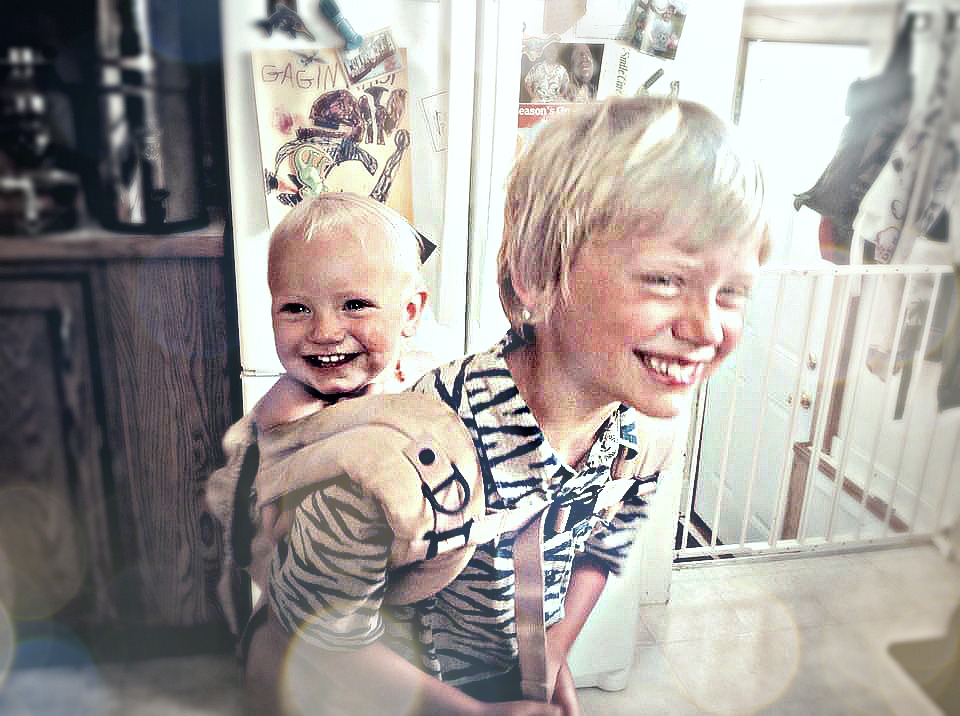
10 Reasons Why A Big Age Gap Between Kids Is A Wise Idea


Originally published at Mothering.com
Age gaps between children: It’s something many parents weigh carefully as we plan our families. How many kids should we have? Should we have them close together? Should we have them far apart?
The reality is that there is no perfect age gap for every family; each option comes with pros and cons, and parenting is always both beautiful and challenging anyway, regardless of how many kids you have or how close or far apart they are in age.
I’m a mother of two boys. One is nine years old, and the other is three. My experience having kids six years apart has been a good one, and I’d like to share the benefits.
There are benefits to having kids closer together as well. This isn’t a fabricated “mommy war” issue where one option is inherently better than the other, but there are positive aspects to different approaches. It’s not better than, it’s just different.
I once happened upon a discussion where a mom was struggling with fertility after having her first baby years before. She was concerned that her eldest child would suffer from not having a sibling close in age. She worried that her child would be lonely, that her kids wouldn’t be close emotionally, that somehow their family would be lacking.
Several mothers joined the conversation to share those concerns and said they’d never want to have kids “too far apart.”
Thankfully, multiple people chimed in to say otherwise. Women who had large age gaps with their siblings commented to say that they were close to them. And mothers whose kids were far apart in age stated that their kids are happily bonded and attached. I hoped the discussion alleviated any fears the mom felt about having kids further apart.
Having a large age gap between children isn’t for everyone; what works for one family might not work for the next. There are benefits to having kids close together, too. For example, kids who are close together in age often have a built-in playmate and close friend in their sibling. Having babies close together, then moving on past the newborn and toddler stage offers some unique freedom to families who are ready to be done with diapers and carseats. Having kids close together allows you more time to have more kids, if you want a large family.
Some parents simply enjoy having lots of young children around, and the joy it brings is perfect for them. I think it’s especially obvious later in life, when the kids are older and have more independence, and the final result is a large, close-knit family. It’s lovely. But it’s not for everyone.
Here are ten benefits to having a large age gap between children:
- It can be easier on your body. This isn’t always the case — some research shows that having pregnancies closer together can actually lower the risk of preeclampsia. However, waiting for at least a year or two between pregnancies has its benefits. Research has found that pregnancies less than 18 months apart were associated with the “highest risk for poor maternal and child outcomes.” Pregnancies less than six months apart are associated with placental abruption. Less time between pregnancies is also associated with uterine rupture after cesarean birth.
- It might be better for your mental health. If you are someone who experiences anxiety, depression, or other issues which affect your mental health, know that a larger age gap can lend to a calmer household. Some people can thrive with noise and chaos, but a busy household full of the sights and sounds of early childhood doesn’t give much time for decompression. If a relatively quiet space is occasionally important to you, consider a larger age gap. One study showed that the stress of having kids close together can negatively impact the quality of parenting.
- Toddlerhood can exist as its own entity. Toddlerhood is notoriously difficult because of the changes happening in your child’s brain. They grow more independent and quickly learn that they can do interesting things, but those things are not always safe and the word “no” loses its power fast. They have the physical ability to get into cupboards or tear down grocery displays or touch the outlet, but they don’t have the impulse control or emotional regulation to respond with reason most of the time. Having one toddler at a time can help assure that they get the attention needed to ease frustrations.
- The older child gets to do all sorts of secret fun stuff. My nine-year-old has had to exercise his maturity many times: waiting even though it was his turn, giving up a toy to an irrational toddler, letting his little brother play Go Fish however he wants to this one time. In return, he gets to stay up after bedtime and make S’mores in our backyard after helping build a fire. He gets to do three-day sleepovers with grandpa which are full of treats and fun times he doesn’t get at home. He gets to stay up late reading in his own room. He is paid back in full for his patience and flexibility as the older sibling.
- Only one kid in diapers at a time! This one speaks for itself. Multiple little ones means multiple kids in diapers.
- Older kids can do their own carseats. Carseat safety is super important, and also carseats can feel like a huge pain in the butt when you have multiple kids to buckle and unbuckle, especially in the winter. Having some years between kids means the older ones will likely be able to help themselves in the car.
- Larger age gaps allow for privacy and friendship. One of my closest friends has kids with a similar age gap as mine, and the friendship between our kids is awesome! Our older children get to go around the block to the playground together, play in the yard in their secret clubhouse, have sleepovers, and be in their own rooms — all without having to share their time or space with their younger siblings. We keep the little ones entertained elsewhere, and the big kids get to foster their friendship without interruption.
- You might get more sleep. By the time I had a newborn again, my oldest was able to get himself to sleep. He didn’t need naps, he didn’t need a strict bedtime, he goes to bed peacefully and sleeps when he’s tired. Having only one kid co-sleeping at a time = more rest for mom!
- Less bickering overall. My kids don’t fight over toys or which movie to watch or who gets what plate for dinner. My three-year-old is currently feeling particular about such things, and my nine-year-old gracefully works around it. We talk about brain development and how his brain is different than his little brother’s, how it’s easier for a big kid to forgo the sacred blue plate than a little kid. When my second was born, my oldest was old enough that we never had to deal with the baby being hit or handled roughly. The age gap helped eliminate sibling rivalry as well.
- The kids will likely be close friends, eventually. My oldest was six when his brother was born. His newborn brother might not have been much fun to play with at first, but it was enchanting to watch our baby grow and change, then become more conscious and aware, then suddenly turn into a roughhousing little dude who is ready to rumble. It’s true that my oldest had to wait a while for that built-in playmate scenario to arrive, but now that they are nine and three, it just keeps getting better and better. They wrestle and my nine-year-old keeps it safe. They play imagination games together, they read together, they snuggle. They are good friends and I have no doubt their adorable relationship will continue to grow over time.
Overall, what matters most is that the kids we have are loved and cared for. Family planning is a personal decision, and no one answer is right for everyone. How many kids do you have? What are their age gaps? How did you make the choice? Share your stories below!


Comments are closed.